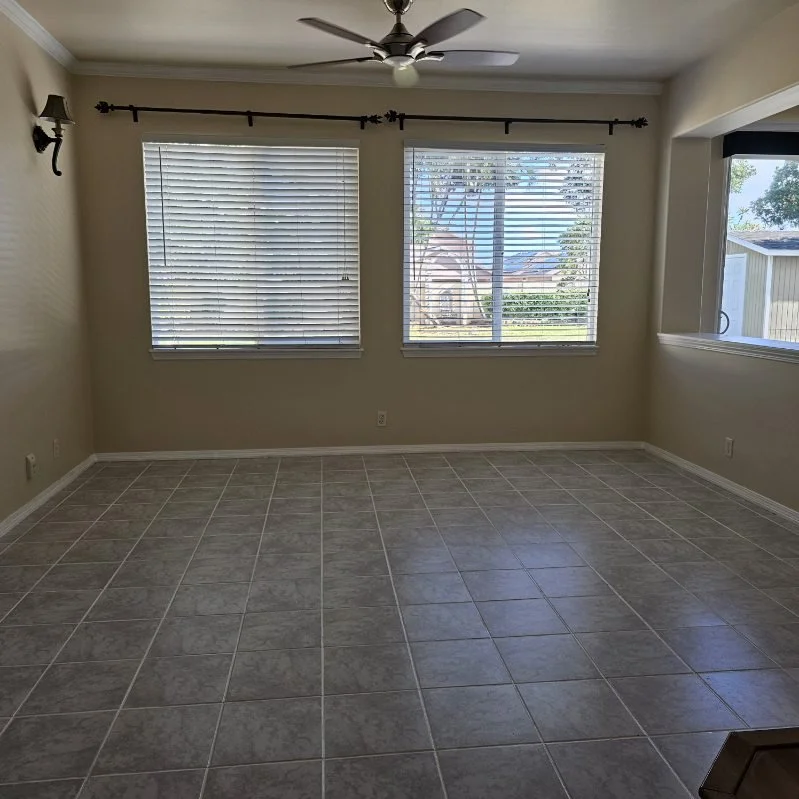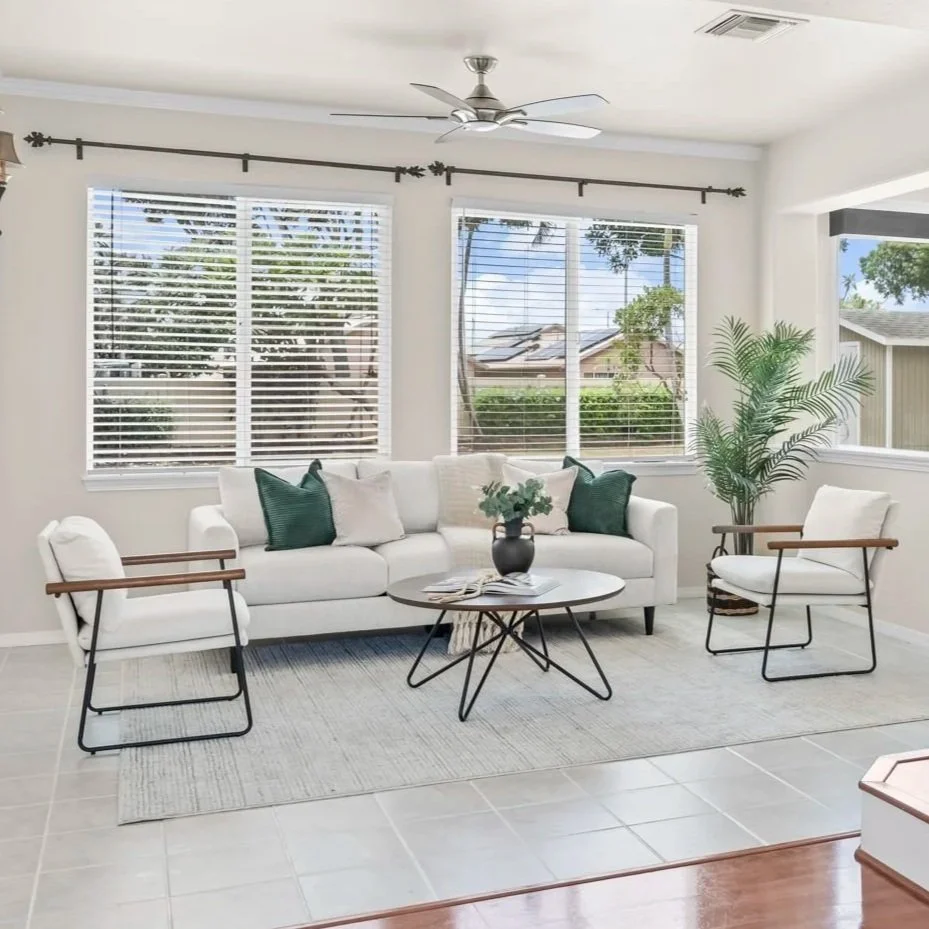Why Listings Sit: Top 3 Mistakes Realtors Make in Hawaii
Momentum is everything in real estate. When a home first hits the market in Hawaii, buyers are paying attention. The first two weeks often set the tone for the entire sale. If the listing feels overpriced, poorly presented, or uninspired online, momentum fades quickly.
At OASIS STAGING + DESIGN, we partner with realtors and investors across Oahu to help them avoid the most common mistakes that lead to listings sitting too long. Below are the top three, and how staging can turn things around.
1. Overpricing Without Proper Preparation
Pricing is always a delicate conversation with sellers. But here’s the truth: even a fairly priced home struggles if it doesn’t look its best.
Buyers today are savvy. They’re scrolling through dozens of listings on Zillow, Redfin, or the MLS, comparing not only square footage but also design appeal. An unstaged property feels flat and forgettable, which makes buyers question value.
Staging helps support the asking price by creating a lifestyle buyers want to step into. A $1M listing in Hawaii Kai staged to highlight its open floor plan and ocean views feels worth $1M. Left vacant, it risks feeling cold and overpriced.
2. Weak Photography That Fails to Capture Attention
The old saying “a picture is worth a thousand words” has never been truer. With nearly all Hawaii buyers starting their search online, photos are often the first and only chance to spark interest.
Yet we still see listings where the lights are off, curtains are drawn, or worse, the home is completely vacant. These photos don’t just undersell the home, they can actively hurt the listing by making it look smaller or less inviting.
Professional staging changes this. Furnished rooms photograph with depth, proportion, and warmth. Staged photos also give realtors valuable marketing content for social media, email campaigns, and flyers.
Why OASIS Adds Photography for New Clients
At OASIS, we include complimentary MLS photography for first-time staging clients. This ensures that every listing not only looks its best in person but also online, where it matters most.
3. Skipping Staging Altogether
The biggest mistake of all? Skipping staging entirely.
Some sellers believe buyers can “use their imagination” in a vacant home. In practice, very few can. Studies show more than 80% of buyers have trouble visualizing an empty space. In Hawaii’s market, where homes often come at a premium, buyers expect polished, move-in-ready presentation.
Skipping staging might save a few thousand dollars upfront, but the cost of a 5–10% price reduction down the line far outweighs the investment. For a $1M home, that’s a potential $50K–$100K lost.
ROI Framing for Realtors and Investors
Staging Cost: Usually less than 0.5% of listing price in Hawaii
Price Reductions: Often 5–10% when a listing sits too long
Carrying Costs: For investors, extra months on market mean higher taxes, utilities, and mortgage payments
Marketing Value: Staging provides high-quality photos that drive buyer traffic online
Final Thoughts
Listings don’t sit because of bad luck, they sit because of preventable mistakes. By avoiding overpricing without preparation, relying on weak photos, or skipping staging altogether, realtors can protect both their reputation and their sellers’ bottom line.
At OASIS STAGING + DESIGN, we make the process seamless, from design selection to furniture removal. Whether it’s a starter apartment in Mililani, townhome in Ewa Beach, or a luxury estate in Kahala, we help your listings shine from day one.
Partner with OASIS STAGING + DESIGN and keep your listings moving.





